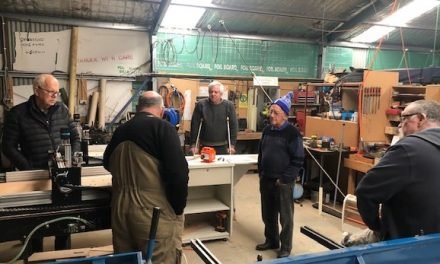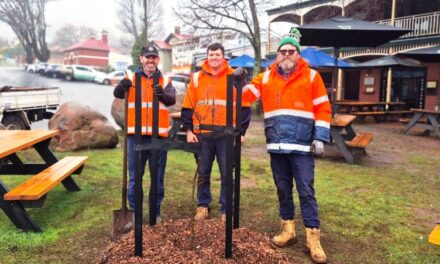The Victorian Civil and and Administrative Tribunal has rejected an appeal by the Endeavour Group to build a large liquor store on the corner of Central Springs Road and Bridport Street. The store would have doubled the supply of packaged liquor in Daylesford in close proximity to a child care Centre, bus stop and swimming pool frequented by children.
In its decision VCAT reported,
“Put simply, we have decided not to grant the liquor licence because of the particular local, social, demographic and geographic circumstances. The premisses is located in an education and family friendly area with children of all ages present throughout the year. The location of the premises means that children going to and from school, in care, at school or at leisure will be exposed to this packaged liquor premises. There is a risk of harm to minors from exposure to the premises and the potential for normalisation of alcohol associated with this location. This a circumstance where precaution is warranted.”
The packaged liquor license was initially granted in 2022 by the Victorian Liquor Commission despite over 200 objections from the local community. Following the decision, a group of 10 community members applied for an internal review of the decision and organised evidence, submissions and expert witnesses as part of the review.
After an extensive period of public presentations, cross examination and review, the Commission overturned its original decision and found in favour of the community applicants by withdrawing the Endeavour Group’s packaged liquor license. The Endeavour Group then appealed the Commission’s decision to VCAT. Twelve Community members, and the expert witnesses they called, successfully presented evidence and arguments to support the decision to reject the license.
This case is important because it tested the increased focus on harm minimisation introduced in recent legislative amendments to the Liquor Control Reform Act to increase the focus on the minimisation of harm associated with the granting of packaged liquor licenses.
While the Endeavour Group still has the option of appealing the VCAT decision to the Victorian Supreme Court, the grounds for doing so are now much narrower following the VCAT decision.
The case has highlighted that it is possible for community advocates, concerned about the risk of increased underage drinking, domestic violence, adverse health impacts and disruption to social life associated with large packaged liquor outlets, to successfully contest packaged liquor license applications for large liquor stores against well resourced corporations like the Endeavour Group.
But, in this case, doing so required an enormous voluntary commitment on the part of the community applicants and their supporters over three separate application processes spanning three years, an effort requiring thousands of hours of voluntary time and the stress and strain of extended and adversarial public hearings contested by well paid barristers for the Endeavour Group.
By contrast, the Endeavour Group was represented by an extensive, well resourced legal team and commissioned a series of detailed consultancy studies to support their case. The cost of their representation through the process is likely to have come to hundreds of thousands of dollars.
While this has been a victory for the local community, it also highlights the imbalance between the resources of local community members and large alcohol corporations when it comes to the determination of packaged liquor licenses.





